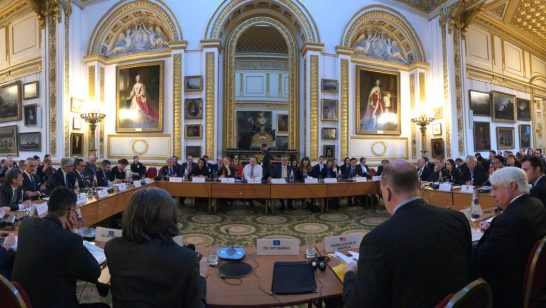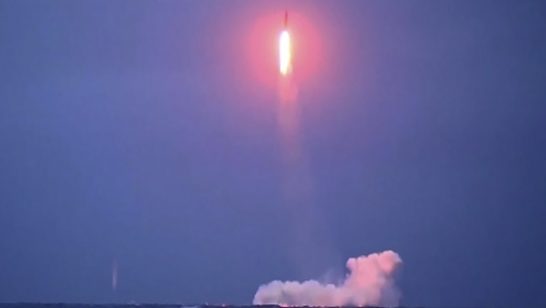
Following a year and a half of consultations with officials and experts from P5 and non-nuclear-weapon states, this joint European Leadership Network (ELN) – Fondation pour la recherche stratégique (FRS) working paper calls upon the P5 to establish a sustained, open-ended and senior dialogue process among the P5 on strategic risk reduction in the form of a working group.
While many States parties have signalled their renewed interest in risk reduction during the tenth NPT review cycle, NPT states parties are divided over the approach; that is, whether to focus on “nuclear” or “strategic” risks. At the same time, geopolitical tensions have deteriorated, fuelling the risk of a conventional conflict, which could unintentionally escalate into a nuclear one.
This working paper focuses on the strategic angle. It argues that the aim of a dialogue process on strategic risk reduction should not only be to arrive at a common P5 understanding of “strategic” risks but also to adopt a programme of work to mitigate those risks through substantive measures during the eleventh NPT review cycle.
Specific substantive measures that the P5 should explore include:
- Practical measures to reduce the risk of the use of nuclear weapons by miscalculation through technical measures to foster confidence and through tools to increase communication (e.g., hotlines, risk reduction centres) as outlined by the Stockholm Initiative in working paper NPT/CONF.2020/WP.9 (paragraph 8, d, ii). In a developing crisis, these measures will help avoid misunderstandings by ensuring transparency over actions.
- A declaratory commitment against nuclear war as a confidence-building measure. Alternatively, a declaratory commitment to reduce the role and significance of nuclear weapons (in military and security concepts, doctrines and policies).
- Regular exchanges between the P5 and non-nuclear-weapon states on risk reduction.
The ideas presented in this working paper have been explored with officials and experts from all P5 states and some non-nuclear-weapon states in the period June 2020 to December 2021. In December 2021, the P5 formally announced the inclusion of “strategic risk reduction” into their working group on nuclear doctrines and policies as “separate but related topics” with the publication of working paper NPT/CONF.2020/WP.33. We note with satisfaction that some of the ideas explored in this joint ELN-FRS working paper, such as the recommendations to establish a strategic risk reduction working group and to make a joint declaratory commitment against nuclear war, have been adopted by the P5. We hope that the P5 will also explore some of the other recommendations set forth in this working paper to agree on a substantive programme of work in the run-up to the postponed 2020 NPT review conference.
The opinions articulated above represent the views of the author, and do not necessarily reflect the position of the European Leadership Network (ELN) or any of the ELN’s members. The ELN’s aim is to encourage debates that will help develop Europe’s capacity to address pressing foreign, defence, and security challenges.
Image: Flickr, United Nations Security Council



